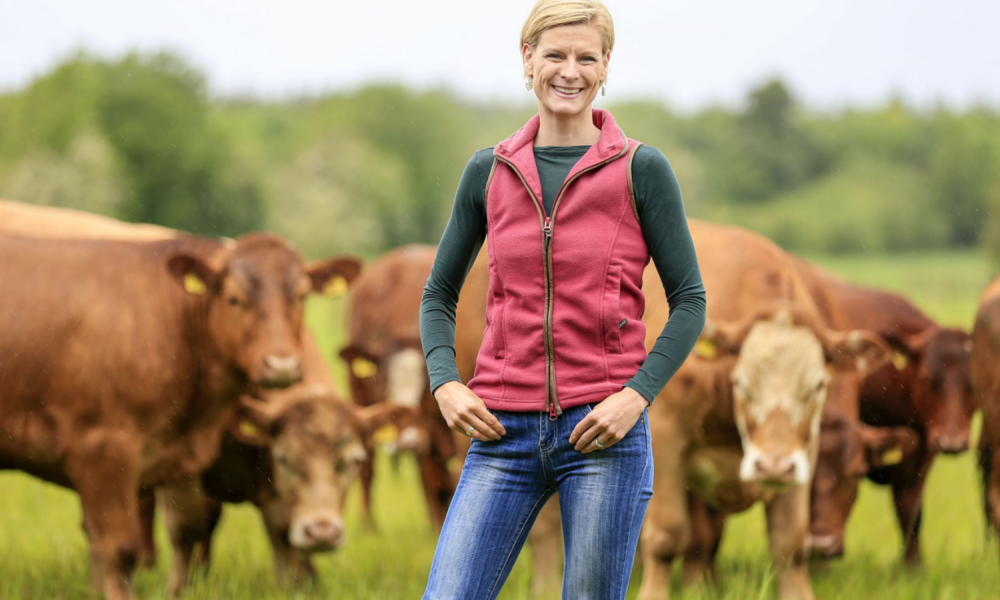Minister Hackett welcomes Cabinet recognition of CAP Strategic Plan

Pippa Hackett, Minister of State with responsibility for Land Use and Biodiversity, has welcomed the upcoming CAP Strategic Plan, endorsed today at Cabinet, as a significant leap forward in the way farmers are supported to protect their farms, their families, their incomes, and their land. It will be lodged with the European Commission before the end of the year.
Addressing the basis on which the new CAP was designed, Minister Hackett said;
“This CAP is very much about supporting farmers to address the needs of their land. Without a healthy environment, we have no future. So, I am really happy to see so many measures in it that I know will deliver for farmers, their families and their incomes, while also protecting our soil, water, habitats and climate.”
The Minister pointed in particular to the Agricultural Environmental and Climate measures (AECM), which will replace GLAS;
“Over the past number of years, our farmers participated in EIP programmes that were the envy of Europe. That is why it is so positive that the new AECM is bringing the ethos of the EIPs into CAP. It’s an ethos that recognises that farmers need local actions with a bottom-up approach that is collaborative and involves farmers in the decision-making process. That, and the presence of strong ecological expertise will, I believe, deliver strong results for the €300m per year that is being allocated to this scheme to protect our high nature-value farmland.”
Minister Hackett also referenced the eco-schemes that will be available to all farmers, saying:
“With fertiliser prices going in just one direction, I think farmers will welcome the multi-species sward measure in the eco-schemes. We have made massive progress on this in the past few months, moving from securing €1 million euro in the recent budget for a pilot to seeing it embedded in the CAP, but as I said when I spoke about in it the Seanad, when I saw a farmer with his sward of grass, clover and herbs, with no need for fertiliser, I believed I was seeing the future. And it’s only one of the available options, all of which are geared towards helping farmers manage their soil and habitats as well as possible.”
The Minister also spoke of her ambition for organic farming;
“I am particularly happy with the allocation of €256 million for organic farming. Consumers want organic produce and farmers want to go organic. Markets are there for organic produce and I believe that with reassurance about markets and support for conversion, many farmers will make the leap. There is room for them all, but I believe the organic dairy sector is particularly ripe for development, and with a stand alone organic division in my department now for the first time, I will be driving forward towards that target of 7.5% of our land under organic management.”
The measures in the new CAP that will support women in farming were also welcomed by Minister Hackett;
“We need to support the many women who could and should be heads of farm households. So, I am very happy to see that women farmers will qualify for higher TAMS grants and also that there will be separate Knowledge Transfer Groups for women. I think these measures will help and encourage our female farmers to play the role I know they can.”
“Since I took up office in the Department of Agriculture, I have seen many initiatives being put in place to deliver both for farming and the environment. We’ve had the soil sampling programme, the farm environment study, the Life projects we support, and the All-Ireland pollinator plan. The information and experience from them are all feeding into CAP, while we are also building on our EIP knowledge and experience by incorporating into it new EIPs to help breeding waders and also to target water quality on intensive farms. So, it’s a big programme and, being honest, it’s also a new direction. But I believe that taken together, all the measures, combined with the really strong level of co-operation we have developed with the NPWS, will deliver results – for our farmers, for nature, for biodiversity, and for climate.”




